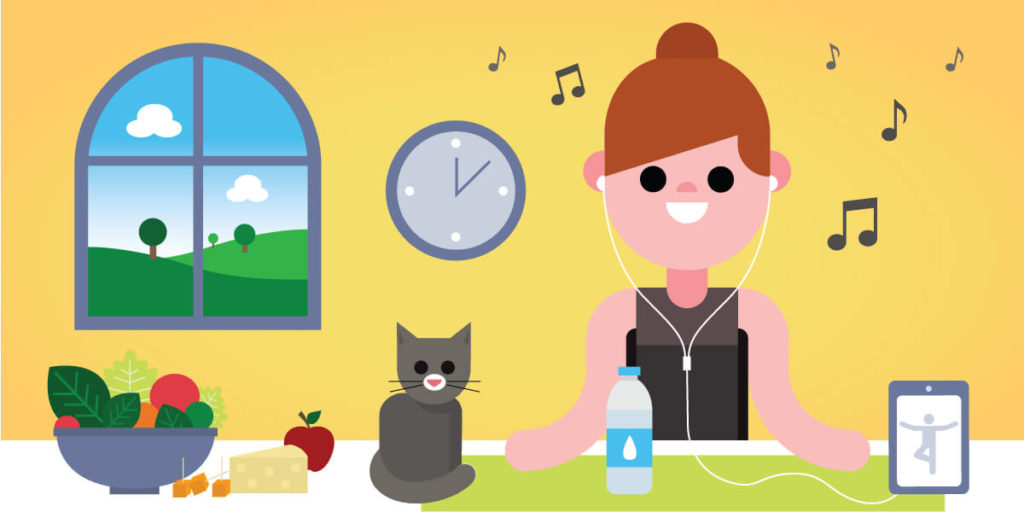Coping with Stress and Anxiety During COVID-19

COVID-19 may be impacting your life in significant ways, contributing to increased feelings of stress and anxiety. This is a normal and justified response to the changing realities that we are all facing. Perhaps more now than ever, it’s important to take care of ourselves mentally and physically in order to cope with and reduce feelings of anxiety. How do we do this? Here are 10 tips that may be helpful:
Stay Informed (within limits)
Information is important but we also need to be mindful of how we’re using it. Try setting limits on how often your scanning for updates to keep that worry in check. Ensuring that you’re accessing trusted sources (that aren’t sensationalizing) such as public health sites, can also help to limit feelings of panic.
Get Physical
Staying physically healthy can help make you more resilient to stress and anxiety, so eat healthy foods, exercise when you can and aim for a good night’s sleep instead of binge-watching until 2 am.
Connecting to your physical self can also be helpful. Breathing slowly and deeply can help turn off your fight/ flight response, decreasing your heart rate and relaxing your body and mind. Tensing then relaxing muscles can also promote feelings of relaxation.
Claim Your Turf
If you’re living in close quarters with others it’s important to remember that everyone needs their space. Find a space that’s just for you, even a cozy corner where you can put on some headphones and listen to a podcast. Encourage your housemates to do the same and respect each other’s boundaries.
Stay in the Now
Anxiety lives in the future. It likes to focus on what might happen and can fill our heads with worst-case scenarios and perilous possibilities. Try coming back to the here and now to slow down that worry train. One simple way to do this is to use your five senses to pay attention to what’s around you. Try naming five things you can see, four you can touch, three you can hear, two you can smell, and one you can taste.
Reclaim Some Control
Part of what drives anxiety is the lack of control, so take some back. Choose to protect others by practicing social distancing, create a routine and stick to it or start a new project and move towards completion.
Get Social From a Distance
We are a social species, so finding safe ways to connect is really important. Thankfully there are many ways to connect online. Have a video coffee date with friends, call your family, play online games with strangers, or sign up for a virtual gym and join a group workout. Just make sure to stay connected while you distance.
Focus on Your Values
Think about what is important to you, and how you can live by your values today. For example, if learning is important to you pick up a new skill if kindness is important, volunteer to deliver a care package to the doorstep of someone in need.
Look for Meaning in the Tough Stuff
Try thinking about events on a broader, longer-term scale. Reflect on how the virus doesn’t care about our countries or our politics. The whole world is facing this with you. You can also try taking the perspective of your future-self looking back. How do you want to remember your actions during these difficult times?
Switching Up Your Studies
Suddenly learning everything online is a big change. Be kind to yourself. Recognize there is a learning curve and you’ll get there. Try breaking up your school day into small manageable pieces and doing something different (like a walk) between study blocks. Then play with that schedule, switch your focus between easier subjects and more difficult ones, or put easier subjects into your schedule at the time of day when you struggle most.
Practice Compassion
This is a trying time and there is a lot of pressure to adjust quickly to a new way of living. Give yourself and others a lot of compassion. Recognize that this is difficult and take a time out if you need it, talk to yourself gently and uncritically, do something you find soothing and comforting, lower your expectations and cut yourself some slack for feeling stressed.
– Amanda Ruthman, MA, RP(Q), CCC